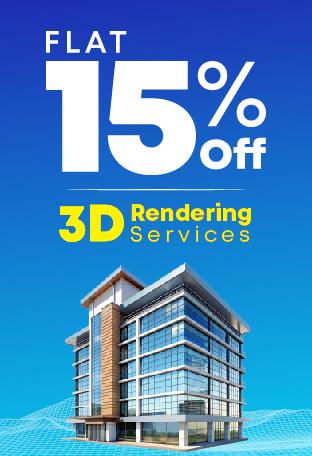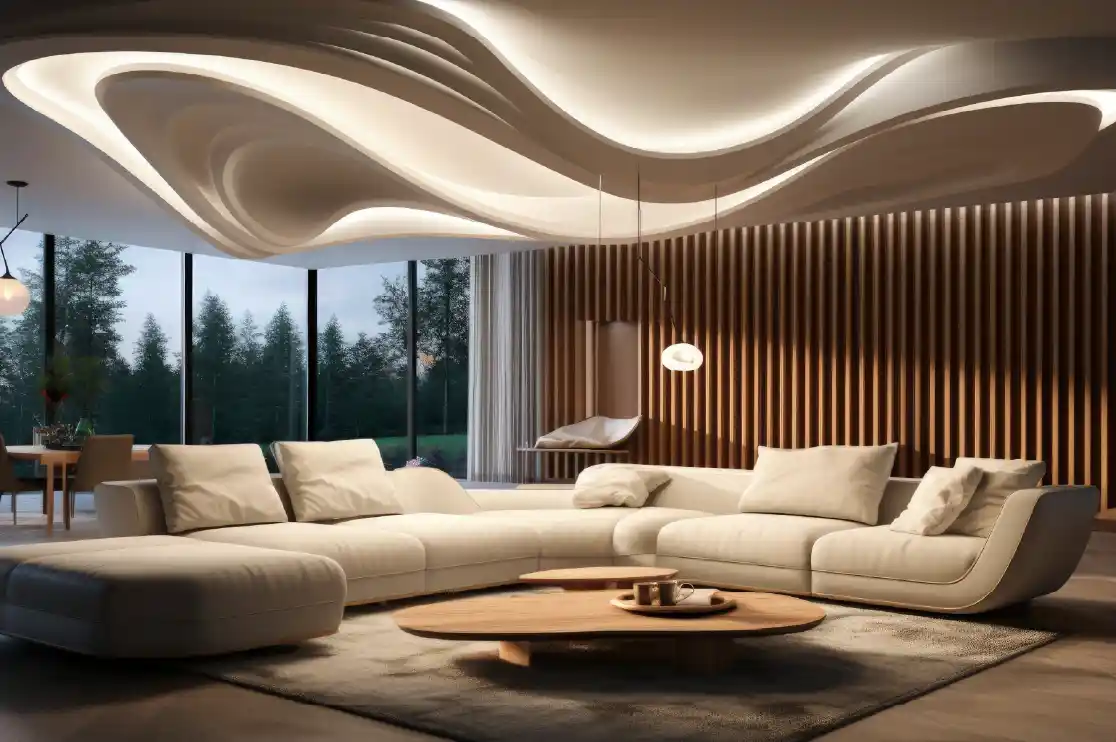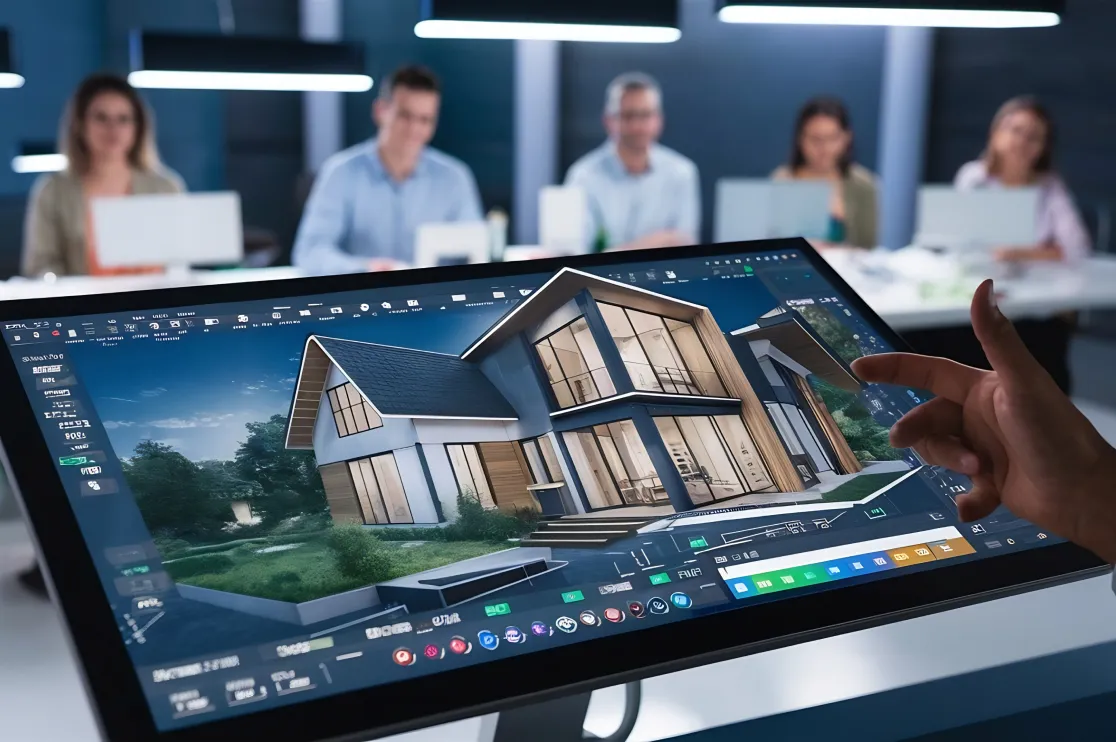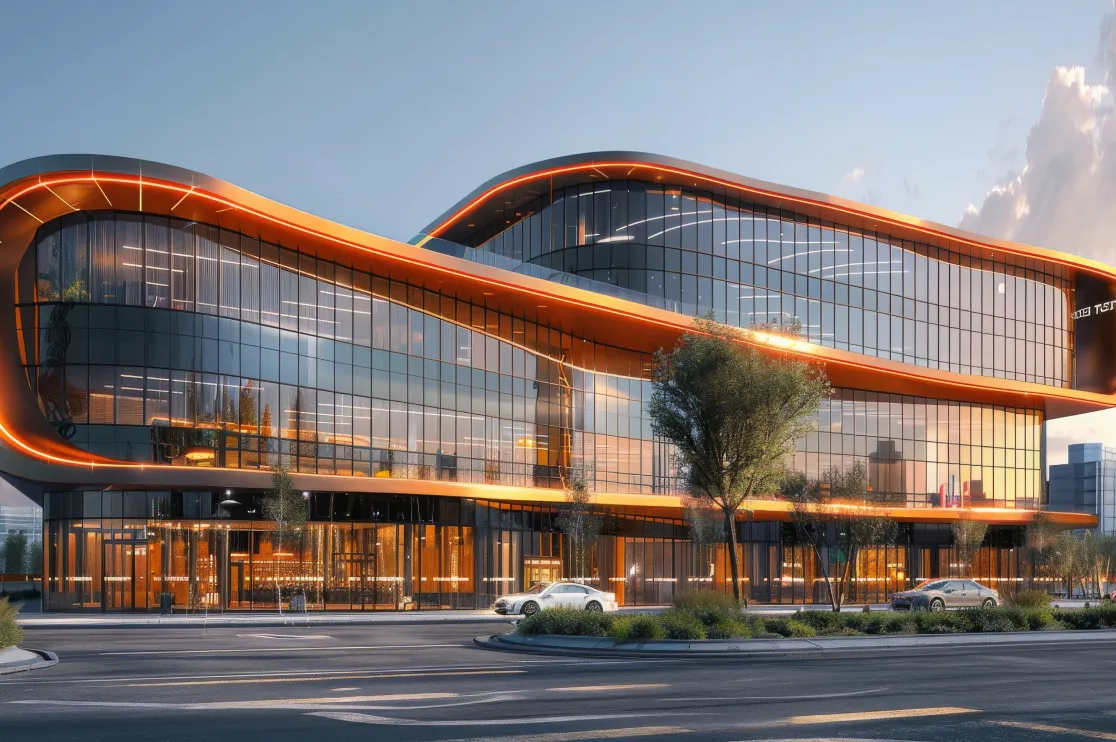Landscape renderings help us in exploring natural outdoor and allow us to understand how it would harmonize with the architectural buildings and roads.
Table of Contents:
3D Landscape architecture creates, designs and communicates the innovative ideas into an experience using technology. The design ideas of the outdoor landscape enhance the balance between the environment and social behavior of people.
For instance, if you want a personal pond in your backyard, you can make it happen as you need to just think forward and plan the design using landscape rendering programs. Such programs assist in designing a landscape according to the space available and let you plan every single detail in the given space.
Landscape architects can magically transform an object into a view which is naturally connected with its surrounding. This involves a lot more of a work than simply picking the plants or trees out of a catalog.
What Does a Landscape Architect Exactly Do?
A landscape architect, the way this profession sounds like, works with the other key members of the architectural project and focus on adding the natural elements to the exterior surroundings of a building which could be a man-made garden, patio, courtyard, nature like interiors, or a rooftop deck. Architects alter the natural elements with the concrete or wooden walls and create pedestrian paths and sitting areas through the yards. They are responsible for creating a natural experience around a calculative soulless building architecture and add life to it in a form of landscape.
Why Did We Need the Landscape Rendering Software?
Earlier the process of developing a landscape rendering was similar to other parts of the building which was via using hand-drawn techniques. It was a time consuming and expensive process.
With the advancements in the computer-based rendering programs, the process of creating the landscape renderings have accelerated and architects could save libraries and catalogs of trees, rocks, or plants. There are plenty of useful landscape features that can quickly transform the renderings from a confusing nod to a convincing yes.
Understand the Land
Every location is unique and so is the landscape. It might be in the heart of a metropolitan city or in a flora rich countryside. Every new location brings along a unique set of situations and challenges in front of the architects, and then they play with the location to create an innovative design. A landscape architect needs to understand the location’s topography, existing rocks, and trees, as well as the identification of potential handout space and its view.
Learn more about Architectural-Walkthrough Services.
This is where landscape rendering expedites the designing process and experiment with a variety of ideas before finalizing the best landscape rendering.
Nevertheless, we have figured several approaches that can help you in designing landscape rendering quite effectively. Let’s learn more about it as follows:
-
Color and its Contrast
If there is a lack of color shades, highlighting contrast and shadows, a landscape rendering isn’t always easy to read and envision. To illustrate further, every landscape involves a variety of green plants throughout the area, so visualizing all the plants in the same shade of green color becomes quite challenging in defining the purpose of the landscape rendering.
To overcome this, a landscape architect needs to represent the different shades of green which are closer or exactly similar to the actual color of the plant and these shade changes with the variety of plants.
In most cases, a combination of 3 colors (especially close to similar color shade) makes a real contrast which includes the below:
-
a base color
-
a highlight color, and
-
a shadow color
The highlight color means the sun is shining on it and the shadow showcases the absence of direct sunlight.
-
-
Variations in Color Based on the Time of the Day or the Season
One of the best landscape architectural renderings consider the season of the year and create the landscape’s color & contrast depending on the season.
We have seen the color of some trees changes from green to red or orange with the transition in the season. That’s what the landscape designers should follow and represent the renderings as real as possible based on the time of the year.
The color also differentiates in the night-time renderings if the landscape architecture includes spotlights or up lights.
-
Shapes and Sizes of the Plantation
An impressive landscape rendering showcases every minute details of the plants such as the direction of branches or leaves.
Some of the trees grow branches at 90 degrees straight out of the trunk, whilst others grow branches around 45 degrees. The angle of the branch impacts the shadow below the trees. Majority of the 3D rendering software lets you choose the shape & size of the leaf and rendered automatically on whatever branch type you selected. Such details can give you the landscape rendering which would look exactly like a real view.
Conclusion
Landscape architecture with the use of technology of digital 3D architectural visualization has changed the way layman used to take risky decisions by investing money into the designing. A landscape rendering software can render a landscape view in real-life experience and enhance the possibility of creating beautiful surroundings.
BluEntCAD is an architectural rendering company with a huge team of architects and designers providing 3D architectural rendering services. We visualize your ideas into the realistic 3D architectural renderings. Contact us to know more.
Maximum Value. Achieved.


















 Professional 3D Living Room Visualization: 6 Ways BluEnt Helps Interior Designers Win Client Approvals
Professional 3D Living Room Visualization: 6 Ways BluEnt Helps Interior Designers Win Client Approvals  Freelancer or Visualization Studio or In-House Team: What Brings More Value for Builders and Developers
Freelancer or Visualization Studio or In-House Team: What Brings More Value for Builders and Developers  6 Correct Ways to Use 3D Animation Video for Real Estate Advertising to Boosts Sales?
6 Correct Ways to Use 3D Animation Video for Real Estate Advertising to Boosts Sales?  Showcase Commercial Real Estate Like Never Before: The Developer’s Guide to Standing Out
Showcase Commercial Real Estate Like Never Before: The Developer’s Guide to Standing Out